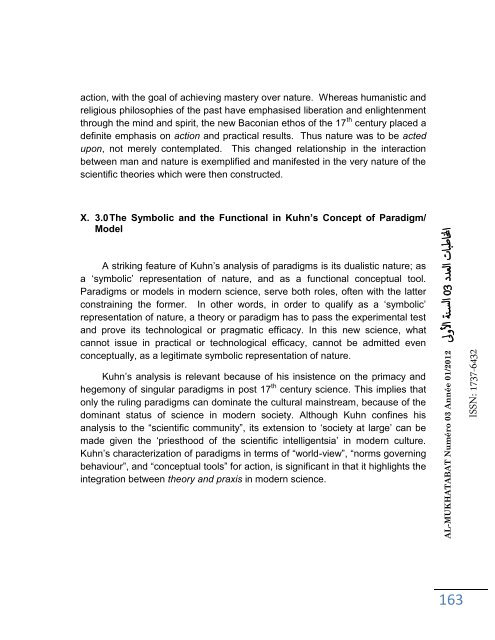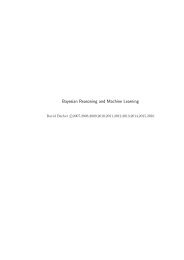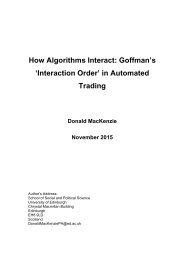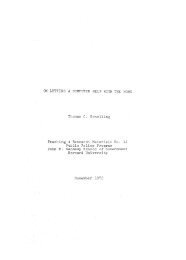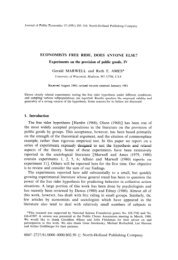n3-al-mukhatabat-journal
n3-al-mukhatabat-journal
n3-al-mukhatabat-journal
Create successful ePaper yourself
Turn your PDF publications into a flip-book with our unique Google optimized e-Paper software.
action, with the go<strong>al</strong> of achieving mastery over nature. Whereas humanistic and<br />
religious philosophies of the past have emphasised liberation and enlightenment<br />
through the mind and spirit, the new Baconian ethos of the 17 th century placed a<br />
definite emphasis on action and practic<strong>al</strong> results. Thus nature was to be acted<br />
upon, not merely contemplated. This changed relationship in the interaction<br />
between man and nature is exemplified and manifested in the very nature of the<br />
scientific theories which were then constructed.<br />
X. 3.0 The Symbolic and the Function<strong>al</strong> in Kuhn’s Concept of Paradigm/<br />
Model<br />
A striking feature of Kuhn’s an<strong>al</strong>ysis of paradigms is its du<strong>al</strong>istic nature; as<br />
a ‘symbolic’ representation of nature, and as a function<strong>al</strong> conceptu<strong>al</strong> tool.<br />
Paradigms or models in modern science, serve both roles, often with the latter<br />
constraining the former. In other words, in order to qu<strong>al</strong>ify as a ‘symbolic’<br />
representation of nature, a theory or paradigm has to pass the experiment<strong>al</strong> test<br />
and prove its technologic<strong>al</strong> or pragmatic efficacy. In this new science, what<br />
cannot issue in practic<strong>al</strong> or technologic<strong>al</strong> efficacy, cannot be admitted even<br />
conceptu<strong>al</strong>ly, as a legitimate symbolic representation of nature.<br />
Kuhn’s an<strong>al</strong>ysis is relevant because of his insistence on the primacy and<br />
hegemony of singular paradigms in post 17 th century science. This implies that<br />
only the ruling paradigms can dominate the cultur<strong>al</strong> mainstream, because of the<br />
dominant status of science in modern society. Although Kuhn confines his<br />
an<strong>al</strong>ysis to the “scientific community”, its extension to ‘society at large’ can be<br />
made given the ‘priesthood of the scientific intelligentsia’ in modern culture.<br />
Kuhn’s characterization of paradigms in terms of “world-view”, “norms governing<br />
behaviour”, and “conceptu<strong>al</strong> tools” for action, is significant in that it highlights the<br />
integration between theory and praxis in modern science.<br />
AL-MUKHATABAT Numéro 03 Année 01/2012 لىولأا ةن سلا 30 ددعلا تابطانا<br />
163<br />
ISSN: 1737-6432


